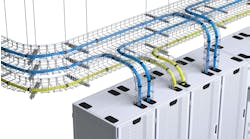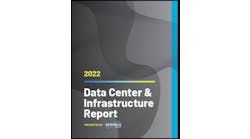GRC (Green Revolution Cooling) has secured a $28 million Series C equity investment led by South Korea-based SK Lubricants, which will help the company address growing demand for its single-phase immersion cooling technology. This most recent equity investment brings the company’s total funding to date to $43 million.
GRC has been in the forefront of the effort to increase the use of liquid cooling in the data center industry, and the funding arrives as powerful hardware is prompting more data center operators to consider advanced cooling solutions, including immersion. The vast majority of data centers continue to cool IT equipment using air, while liquid cooling has been used primarily in high-performance computing (HPC).
New hardware for AI workloads is packing more computing power into each piece of equipment, boosting the power density – the amount of electricity used by servers and storage in a rack or cabinet – and the accompanying heat. The trend is challenging traditional practices in data center cooling, and prompting data center operators to adapt new strategies to support high-density racks.
“As the AI, VR and self-driving (car) industries are gaining traction, the high-density data center market is expected to grow dramatically,” said Cha Gyu-tak, CEO of SK Lubricants., who said the equity investment will “help accelerate broader adoption of liquid immersion cooling in the data center and help us be the first mover in the market while helping us grow into a liquid-based thermal management solution provider.”
GRC submerges servers in a tank filled with liquid coolant, rather than using cold air. This approach offers potential economic benefits by allowing data centers to operate servers without a raised floor, computer room air conditioning (CRAC) units or chillers. The company was founded in 2009, and has deployed its technology in 20 countries around the world, with customers in high-performance computing and cryptocurrency mining.
GRC’s approach is known as single-phase immersion cooling. A related technology is two-phase immersion cooling, in which servers are immersed in a coolant fluid that boils off as the chips generate heat, removing the heat as it changes from liquid to vapor. Interest in both approaches has been gaining momentum with broader adoption of AI.
Peter Poulin, the CEO of GRC, said the investment “will allow us to expand the important work we are doing to future proof the cooling infrastructure of data centers globally.”
“With the increased attention on data center efficiency and more broadly proposed environmental reporting standards for organizations across the globe, the investment will also help GRC contribute to a more sustainable data center environment while having a positive impact on the bottom line,” Poulin added.
The investment provides GRC with capital necessary to continue to build on its 2021 milestones, which include a collaboration with Intel, significant end-user deployments with GRC Global Alliance Partners Dell and Vertiv, the launch of a UK subsidiary, an installation at the Texas Advanced Computing Facility, and a new pilot program allowing data center operators to take liquid immersion cooling for a test drive. The new funding will also help GRC to continue to expand its international footprint and global headcount.
SK Lubricants is based in South Korea and specializes in motor oil and other oil-based lubricant products. The expansion into thermal management coolant fluid offers the company a potential “cash cow” business line for the future, while helping SK Lubricants commit to its ESG blueprint. SK said it will work with GRC to jointly develop high-grade single phase immersion coolants and liquid immersion cooling systems for data centers, working together to drive rapid standardization and commercialization of these systems.
In addition to supporting extreme power density, immersion cooling offers potential economic benefits by allowing data centers to operate servers without a raised floor, computer room air conditioning (CRAC) units or chillers. It also eliminates the need for server fans, which can also be power hogs.






